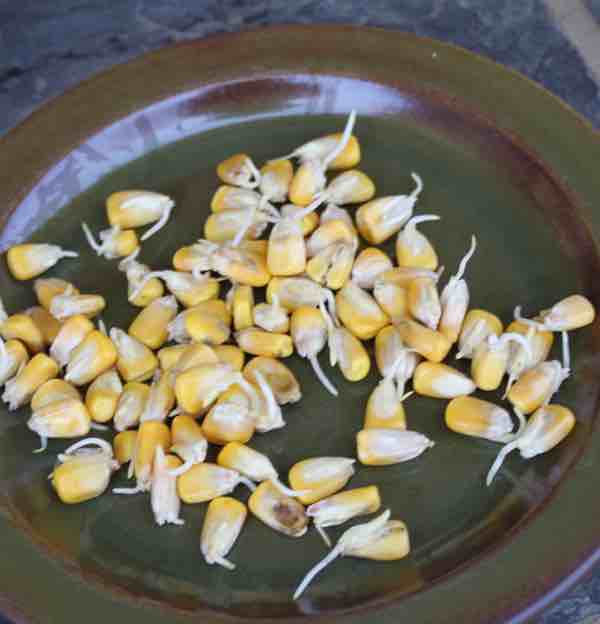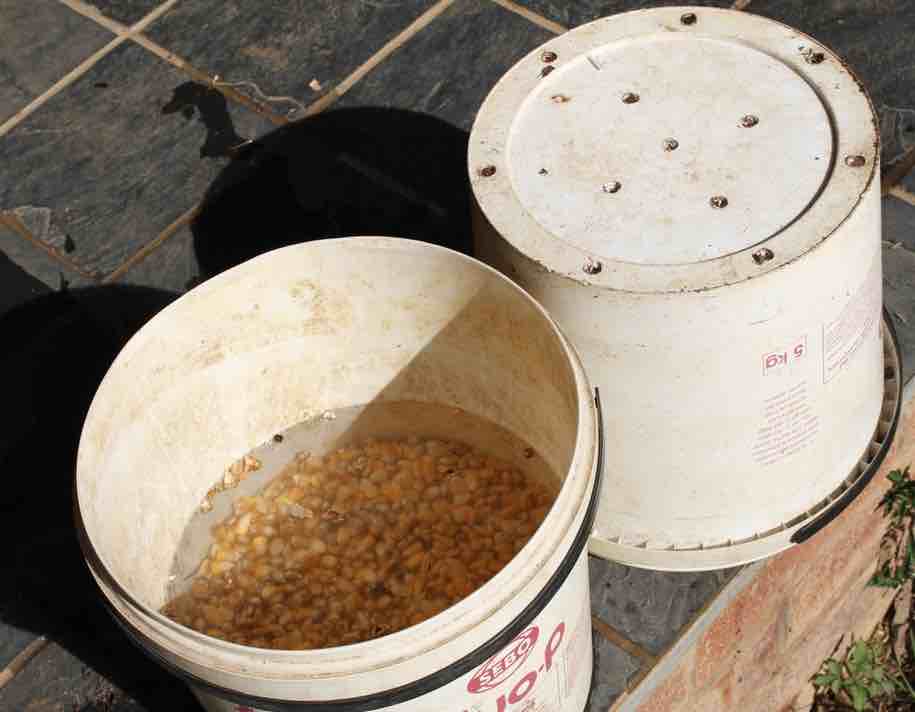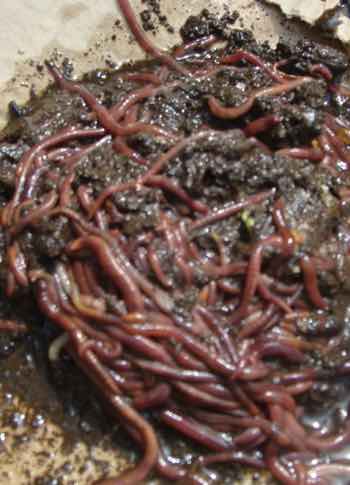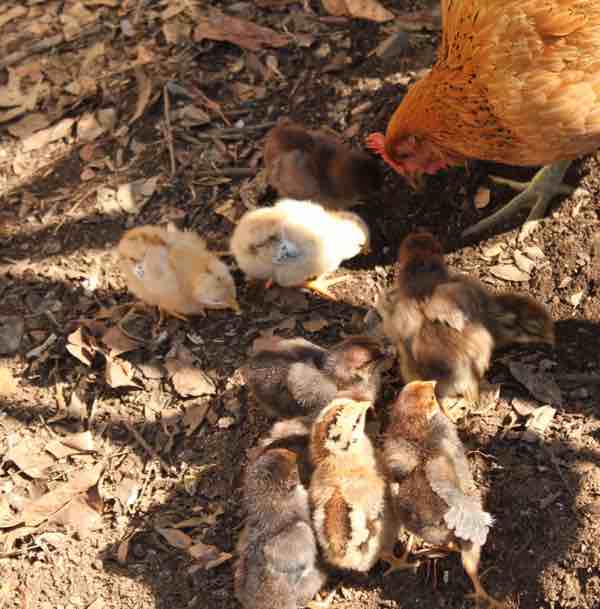- Bernard Preston homepage
- Chickens
- Sprouted Corn for Chickens
Sprouted corn for chickens
Sprouted corn for chickens is one way to keep the price of your feed down and simultaneously to increase the available nutrition to your hens; in fact the principles are exactly the same as preparing seeds for human consumption.
This page was last updated by Bernard Preston on 10th August, 2024.

Frankly I think there is much to be desired of many commercial brands of feed for your hens. Various minerals and proteins are added to the corn yet they clearly are not partial to it; it is wasted.
Just watching them feed on pellets and you can see that they do not excite the birds; they seem to eat it almost reluctantly compared to sprouted corn.
Give them access to your kale and broccoli, or the vermicompost from a worm farm and they simply go crazy in a feeding frenzy not unlike gannets diving into a shoal of fish.
Desiring to improve the nutrition of our free range hens, we started sprouting corn and were immediately struck by how easy it is; and how much the birds love it and choose it over commercial feeds.
However frequent rinsing is important; do not let them rot.
Seeds contain many anti-nutrients that inhibit the absorption of certain minerals like iron and calcium from our food.
It's a controversial subject but soaking and rinsing them several times, and then allowing the corn to sprout removes many of these compounds; phytates, lectins and saponins are repeatedly mentioned by researchers as possibly having a detrimental effect on digestion and absorption.
It is probably true in sprouted corn for chickens too. Various authorities report that the birds thrive less well on straight mealies, as we call them in South Africa.
Certainly the hens go bananas over the sprouted corn; but are indifferent to dried maize kernels and fast food pellets.
Sprouted corn for chickens

Firstly you need a bucket; and a second with holes in the bottom will be useful. Cover the corn with water for 24 hours, rinsing several times by pouring through the filter.
Then leave the damp corn for several days to sprout, rinsing again regularly. Once they start, evidenced by a white tendril you can feed them to the hens.
They should finish your mealies within a few days; once it starts to ferment, the birds lose interest.
Just as fast-food for humans will detract from our vitality, so many of the packaged feeds for hens and our dogs and cats for that matter leave much to be desired.
Once having seen and tasted free-range eggs with their golden yolks, where the birds can graze on many plants, insects and worms you will know what I mean.
However the average yard does not have enough organic greens and grains to feed your hens and keep them laying optimally.
In the summer we can provide fresh young maize on the cob but for the rest of the year, sprouted corn for chickens is essential; in fact other grains like wheat are also desirable to give them a more varied diet.
For protein they love green peas and string beans and this year we are going to experiment with favas that are very easy and inexpensive to grow. We love them too when they are young and sweet, but as yet we have not tried them on the birds. It eventually turned out to be too much of a sweat.
It is not just about reducing the cost of our feed; it is very much concerning improved nutrition for our birds, something the commercial farmer with thousands of hens cannot easily do.
He relies in a very competitive industry on fast food for his pets.
If you want brilliant eggs then either rear your own or find an organic farmer; then go and see how he does it.
There is a mass of misinformation and downright deceit in the industry.
The aim of the exercise is to improve the nutrition for your hens so they will lay even better eggs, whilst keeping the price of your feed down. Sprouted corn for chickens is part of our solution.
Our worm farms provide them with several thousands wrigglies every week for more protein.
The worms also provide the vermicompost and a liquid fertiliser for our vegetables and fruit trees.
In a world abounding in serious chronic degenerative diseases, returning to nature is how we have managed to keep strong without the use of medication; and in fact with a minimum of vitamin and mineral supplements.
Let your food be your medicine, said Hippocrates, more than two millennia ago.

The real cost of raising your own hens and in fact following a backyard permaculture way of life, is time; but it takes only minutes to prepare your sprouted corn for chickens, unlike many of the other gardening activities which can fill your day. There is never a dull moment in Bernard Preston's home.
Right now I am off to let the birds out of their roost, feed them and keep an eye on our broody who is in her last trimester; and then it will be fixing a pump that is giving trouble.
We have felled a tree that was dangerously close to the house, so there is a lot of sawing and splitting of timber for the wood-stove this week. Lovely planks are piled high in the workshop, drying for next year's carpentry; and perhaps more chicken roosts.
One either spends the time growing and rearing healthy food, or you will find yourself many more hours consulting your doctors and swallowing a bucket load of very costly and potentially dangerous drugs and supplements.
Did you know that taking vitamin E in capsules increases the rate of prostate tumours, if it contains only the most common form, alpha-tocopherol? Yet it is vitally important for preventing early frailty. Let your food be your medicine.
There is three times as much vitamin E in free-range eggs.

These are the little guys that will soon help getting your garden soil ready for the summer vegetables.
Best chick food is another story.
When browsing use right click and "Open Link in New Tab" or you may get a bad gateway signal.
Did you find this page interesting? How about forwarding it to a friendly book or food junkie? Better still, a social media tick would help.
- Bernard Preston homepage
- Chickens
- Sprouted Corn for Chickens
Address:
56 Groenekloof Rd,
Hilton, KZN
South Africa
Website:
https://www.bernard-preston.com